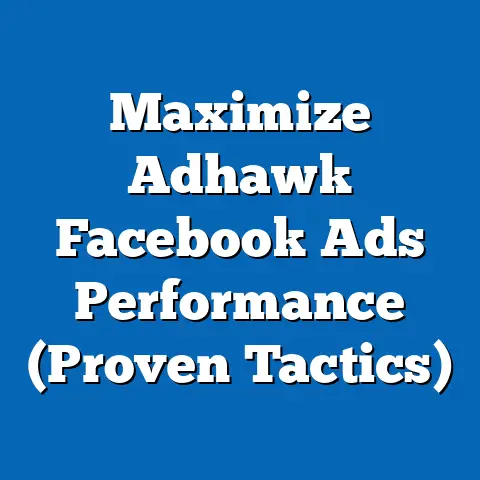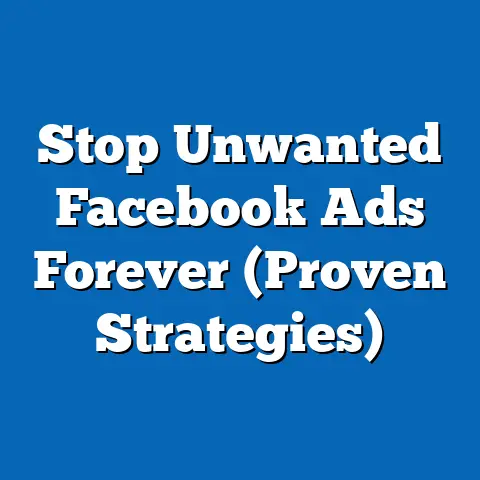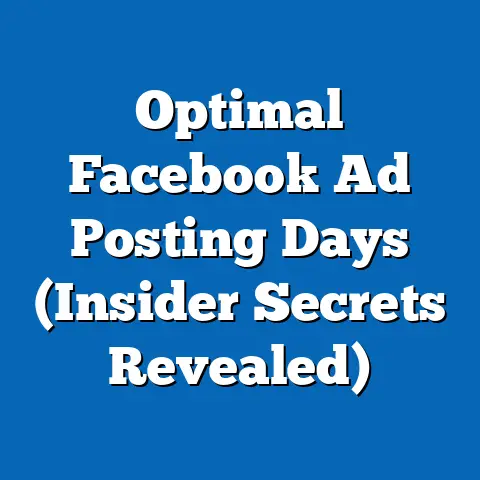Unlock New Friends on Facebook (Discover Hidden Connections)
Do you remember the early days of Facebook? Before targeted ads and political debates dominated our feeds, it was a simpler time. A time when the thrill of receiving a friend request from a long-lost classmate was unparalleled. I remember spending hours meticulously crafting my profile, hoping to reconnect with people I’d lost touch with over the years. The joy of finding old schoolmates, distant relatives, and childhood friends was infectious. It was like unearthing a treasure trove of forgotten memories. While Facebook has evolved significantly since then, the potential to discover and forge new connections remains a powerful and often overlooked aspect of the platform.
The world feels increasingly disconnected these days, despite being more digitally connected than ever before. But what if I told you that Facebook, the very platform that sometimes feels overwhelming and impersonal, still holds the key to unlocking new friendships and rediscovering hidden connections? Let’s take a journey back to the heart of social networking and explore how you can use Facebook to expand your social circle and build meaningful relationships.
The Evolution of Facebook Connections
Facebook’s journey, in my view, is a reflection of how we, as a society, have adapted to digital communication. In the beginning, back in the mid-2000s, Facebook was primarily a tool for college students to connect with each other. Remember having to have a college email address just to sign up? It felt exclusive, like a secret club. The initial excitement was palpable – creating a profile felt like crafting your digital identity, and sending friend requests was an act of extending a hand across virtual space.
The platform quickly evolved, expanding beyond universities to include everyone. This shift brought about a transformation in how we used Facebook. Suddenly, we weren’t just connecting with people we already knew; we were maintaining connections over vast distances and across long periods of time. I remember being amazed at how easily I could stay in touch with friends who had moved to different countries, sharing updates and milestones as if we were just next door.
Key features like the News Feed revolutionized how we consumed information and interacted with our networks. It allowed us to passively stay updated on the lives of our friends, sparking conversations and fostering a sense of community. Groups and events further enriched the platform, providing spaces for like-minded individuals to connect and share their interests.
Takeaway: Facebook has evolved from a simple connection tool to a dynamic platform for building communities and finding new friends, presenting endless opportunities to expand your social circle.
The Power of Mutual Friends
One of the most powerful, yet often overlooked, features of Facebook is the ability to leverage mutual friends. Think about it: how many times have you seen a “People You May Know” suggestion and thought, “Hey, I know someone who knows them!” That’s the magic of mutual connections.
Facebook’s algorithm is incredibly sophisticated. It analyzes your existing network, your interests, your activity, and a whole host of other factors to suggest potential friends based on shared connections. The more mutual friends you have with someone, the higher the likelihood that you’ll see them as a suggestion.
I’ve personally experienced the power of mutual friends countless times. I remember reconnecting with a former colleague through a mutual acquaintance on Facebook. We hadn’t spoken in years, but seeing that we shared a mutual friend sparked a conversation, and we quickly rekindled our professional relationship.
But it’s not just about rekindling old relationships; it’s also about building new ones. Consider this: you see a friend suggestion with several mutual friends. You’re curious, so you check out their profile. You discover that they share similar interests, work in a related field, or have a similar background. The fact that you share mutual friends provides a sense of social validation and trust. It’s like a pre-emptive endorsement, making you more comfortable reaching out and initiating a conversation.
The psychology behind this is simple: we’re more likely to trust and connect with people who are already part of our social circle. It’s a natural human tendency to seek out familiarity and avoid the unknown. Mutual friends provide that bridge, making it easier to overcome the initial hesitation and forge a new connection.
To make the most of this feature, I recommend actively engaging with your existing network. The more you interact with your friends, the more data Facebook has to work with, and the more accurate your friend suggestions will be. Also, don’t be afraid to reach out to mutual friends and ask for an introduction. A simple “Hey, I see you know [Potential Friend]. They seem interesting. Do you think you could introduce us?” can go a long way.
Takeaway: Leverage the power of mutual friends to discover new connections and build trust, making it easier to expand your social circle and forge meaningful relationships.
Utilizing Facebook Groups and Communities
Facebook Groups are, in my opinion, one of the most underrated tools for building genuine connections on the platform. They are digital watering holes where people with shared interests, hobbies, or goals can gather and connect. From photography enthusiasts to local community groups, there’s a group for just about everything.
I’ve personally found incredible value in Facebook Groups. As a digital marketer, I’m a member of several groups dedicated to social media marketing, SEO, and content creation. These groups have not only provided me with valuable insights and industry updates, but they’ve also allowed me to connect with other professionals in my field, collaborate on projects, and even find new clients.
The beauty of Facebook Groups lies in their ability to foster a sense of community. When you join a group, you’re instantly surrounded by like-minded individuals who share your passions and interests. This creates a natural environment for conversation, collaboration, and friendship.
There are several types of Facebook Groups, each offering unique opportunities for connection:
- Hobby-Based Groups: These groups are centered around specific hobbies or interests, such as photography, cooking, gardening, or gaming. They provide a space for members to share their work, ask questions, and learn from each other.
- Local Community Groups: These groups are focused on local communities, neighborhoods, or cities. They serve as platforms for residents to connect, share information, and organize events.
- Professional Networks: These groups are designed for professionals in specific industries or fields. They offer opportunities for networking, collaboration, and career advancement.
- Support Groups: These groups provide a safe and supportive space for individuals facing similar challenges or experiences. They offer emotional support, advice, and resources.
To maximize your experience in Facebook Groups, I recommend actively engaging with other members. Participate in discussions, ask questions, share your expertise, and offer support. Don’t be afraid to reach out to individuals who resonate with you and initiate a private conversation.
I remember reading a story about two members of a local hiking group who met through Facebook. They started chatting online, discovered a shared love for the outdoors, and eventually decided to go on a hike together. That hike turned into a regular activity, and they eventually became best friends. This is just one example of the countless friendships that have been forged through Facebook Groups.
Takeaway: Facebook Groups are a powerful tool for meeting like-minded individuals, fostering a sense of community, and building meaningful relationships around shared interests and passions.
The Hidden Features of Facebook
Beyond the mainstays of friending and group participation, Facebook has a few lesser-known features that can significantly enhance your connection experience. These hidden gems, often tucked away in menus or overlooked in the daily scroll, can be surprisingly effective in expanding your social circle.
One such feature is the “People You May Know” section. While I mentioned it earlier, it’s worth revisiting in more detail. This section goes beyond just mutual friends. It also takes into account your activities, events you’ve attended, groups you’ve joined, and even your location. The more you use Facebook, the more accurate and personalized these suggestions become.
Another useful feature is friend suggestions based on activities or events. If you’ve RSVP’d to an event, Facebook will often suggest other attendees as potential friends. This is a great way to connect with people who share your interests and are likely to be in the same physical space as you.
Facebook Events themselves are a powerful tool for connecting with others. By attending events, both virtual and in-person, you’re putting yourself in a position to meet new people and expand your social circle. Don’t be afraid to strike up conversations with other attendees, whether it’s online or in person.
I also encourage you to explore your own friend list and suggest reaching out to friends of friends who share similar interests. This can be a bit more strategic, but it can also be highly effective. Look for individuals who are active in groups you’re interested in, who attend events you’d like to go to, or who simply seem like interesting people.
Remember, the key to unlocking these hidden connections is to be proactive and intentional. Don’t just passively wait for Facebook to suggest potential friends; actively seek out opportunities to connect with new people and expand your social circle.
Takeaway: Explore Facebook’s hidden features, such as “People You May Know,” event-based friend suggestions, and strategic outreach to friends of friends, to unlock new connections and expand your social circle.
Embracing New Connections
In this digital age, where we’re bombarded with information and constantly connected, it’s easy to feel overwhelmed and disconnected at the same time. But amidst the noise and clutter, there lies a powerful tool for connection: Facebook.
As I mentioned at the start, Facebook has the potential to be more than just a platform for sharing updates and consuming content. It can be a tool for discovering new friendships, rekindling old relationships, and building meaningful communities.
I encourage you to embrace the potential of Facebook as a tool for connection. Remind yourself that every connection holds the possibility for a meaningful relationship, and that the journey of unlocking new friends can be both exciting and rewarding.
Take the first step by reaching out to someone you haven’t spoken to in a while. Join a new group that aligns with your interests. Attend a virtual or in-person event. Explore your friend list and suggest reaching out to friends of friends.
The opportunity to forge new connections is just a click away. Embrace it. You might be surprised at the friendships you discover and the connections you make.






